Social and Relationship Capital

Lives impacted through CSR activities in India
Tata Steel nurtures enduring relationships with communities, customers, partners, and stakeholders through inclusive engagement, shared value creation, and responsible practices. The Company's social licence to operate is rooted in trust, transparency, and a deep commitment to societal progress and stakeholder well-being.
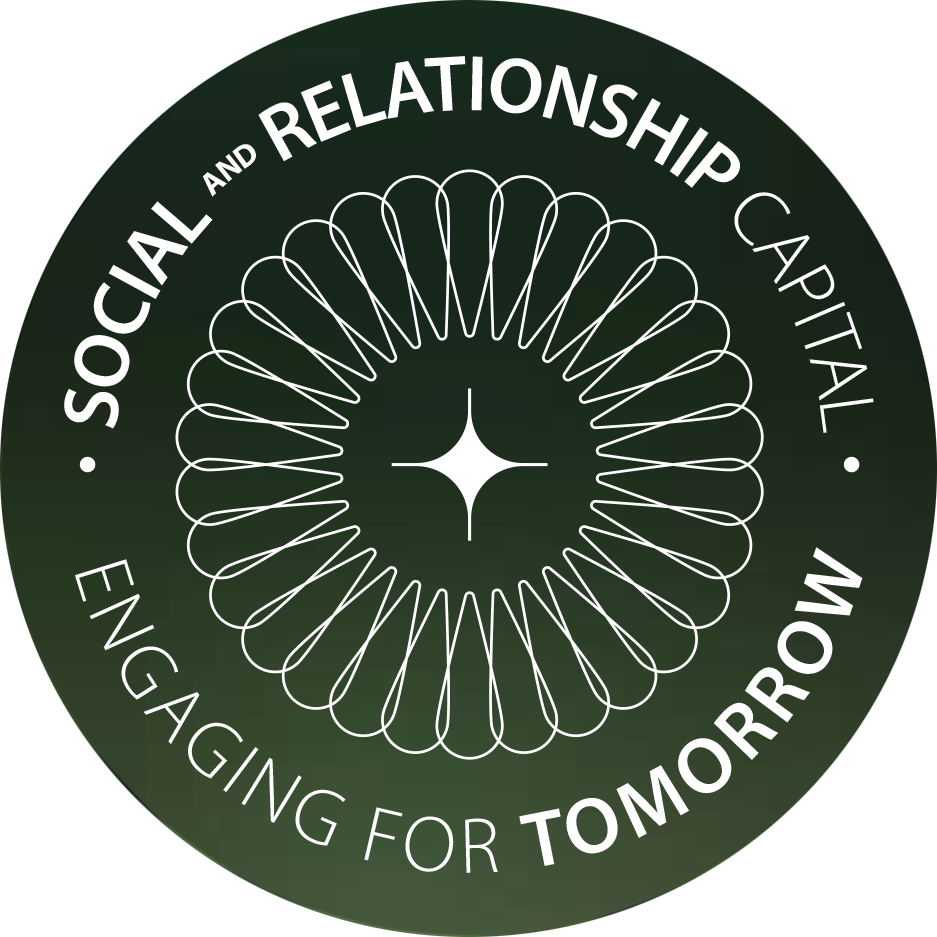
Social capital
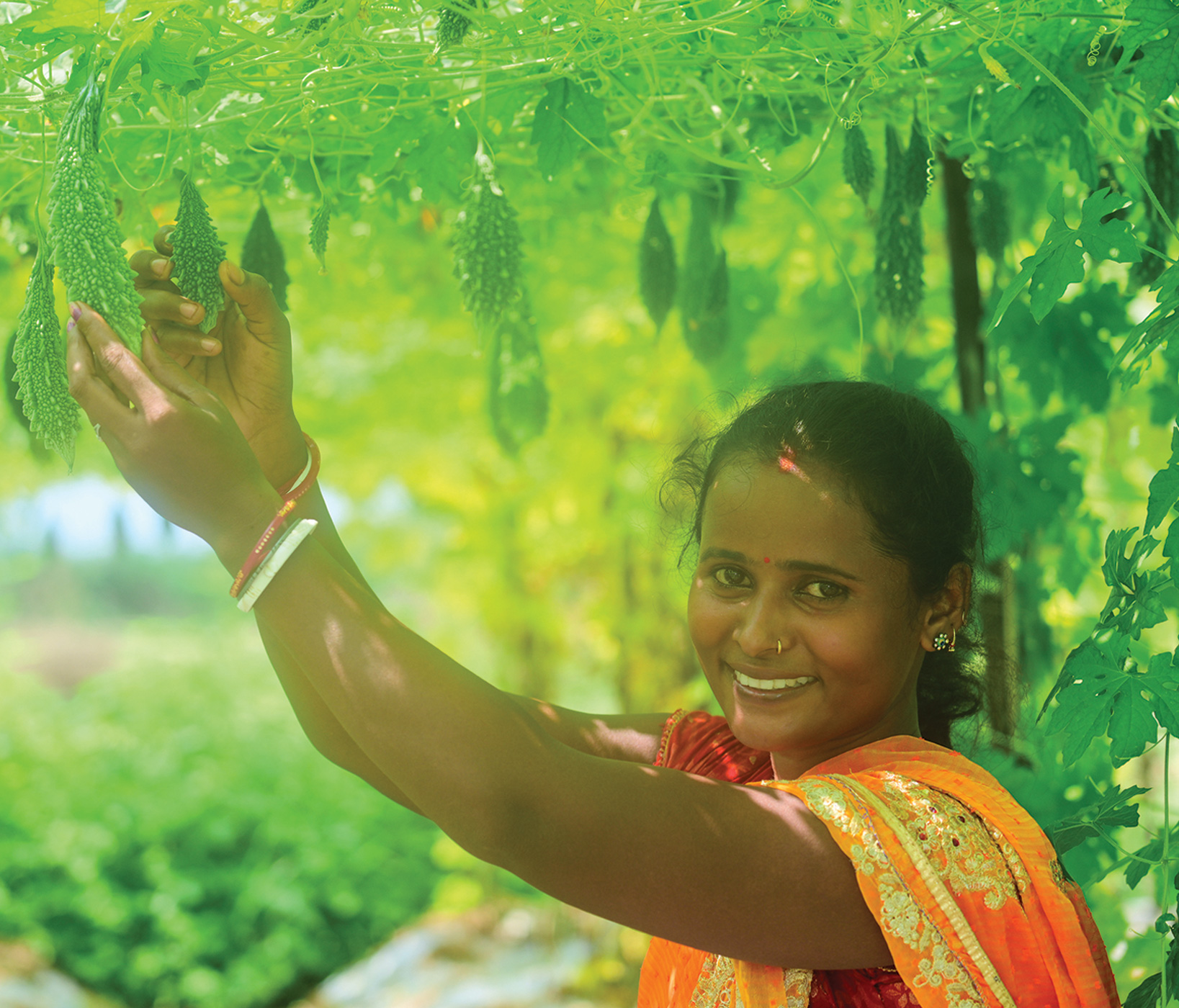
At Tata Steel, social value creation is not an ancillary responsibility, it is core to how the Company defines success. Operating across geographies marked by both potential and precarity, the Company recognises that its growth is inseparable from the well-being of communities that surround its operations. This understanding has shaped a long-standing commitment to co-creating development models that are deeply local, yet scalable.
In FY2024–25, the Company’s social initiatives, through its CSR arm – Tata Steel Foundation (TSF) – impacted over 5.77 million lives, spanning across Jharkhand, Odisha, Maharashtra, Uttar Pradesh, Punjab, and West Bengal, as well as extended Tata Steel's community footprint in the UK, the Netherlands, and Thailand. These initiatives are not merely executed but carefully designed—grounded in strong theories of change, implemented by Tata Steel’s own employees as well as trained social sector professionals, and amplified through partnerships with governments, NGOs and local institutions. The results are visible in real, measurable improvements across health, education, income, governance, and inclusion.
When a farmer in Odisha sees a significant rise in income due to support in integrated farming and access to public schemes, or when a tribal adolescent in Jharkhand defers early pregnancy after reproductive health counselling, the benefits go far beyond the individual. Trust is built. Local institutions are strengthened. Social systems begin to shift. Tata Steel, in turn, secures long-term societal goodwill, operational continuity, and its social licence to operate.
Replication and depth are central to this approach. In 81 blocks across Jharkhand and Odisha, at least one core TSF programme is now active— marking steady progress towards the goal of saturating 500 blocks by 2030. Local governance, a critical lever for lasting change, is being strengthened through Governance Fellowships rolled out in 50 gram panchayats, equipping institutions with the capacity to design and implement inclusive development plans.
In doing so, Tata Steel does not act as an external benefactor but as a facilitator, enabling communities to steer their own progress. The impact is concrete. Over ₹5,300 crore worth of public entitlements—from healthcare to housing, from agricultural subsidies to educational benefits—were unlocked by community members themselves, guided by TSF’s grassroots mobilisers.
Tata Steel’s social impact architecture operates on three mutually reinforcing tiers, with employees driving and amplifying outcomes at every level. Flagship national programmes such as MANSI+ (maternal and child health), our Signature Education Programmes, and Samvaad (tribal identity and leadership) have outgrown the 'pilot' label and now function at population scale. MANSI+ reaches more than 3.4 lakh women and children; 93% of high-risk pregnancies culminate in institutional deliveries, and over 5,000 under- nourished children have been restored to healthy growth trajectories. TSF's Education Signature Programme has reached over 8 lakh children, mainstreamed 22,489 out of school learners, and helped 60 panchayats declare themselves Child Labour-Free Zones.
Regional level programmes translate national intent into local reality. In the Jamshedpur– Kalinganagar corridor, ₹160 crore has been directly unlocked by over 47,000 community members, proving that participatory development sustains itself once local capacity is built.
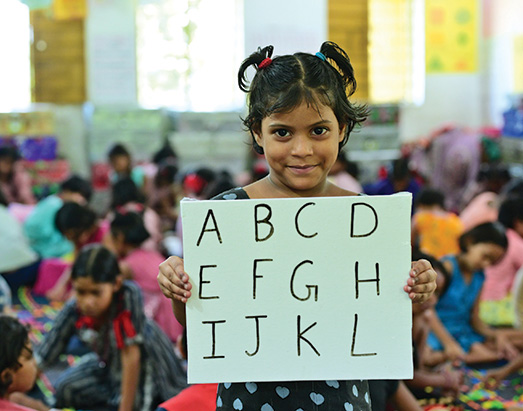
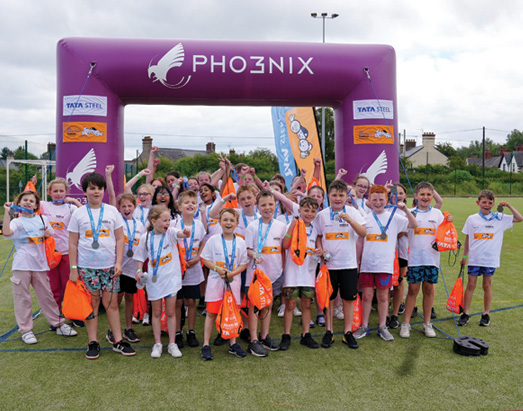
In the urban slums of Jamshedpur, Masti Ki Pathshala has enabled 73% of 5,406 highly vulnerable children (street connected, substance abusing or labouring) to enter mainstream schools. Sabal has supported over 14,000 persons with disabilities and convened 43 civil society partners nationwide, while Disha has equipped 2,583 rural women with leadership skills, with 825 now holding formal decision-making roles.
At Tata Steel, social responsibility is not confined to TSF’s programmes. Tata Steel's employees also volunteer for social causes, contributing their time and efforts towards the benefit of the community. In India, in FY2024-25, 16,505 employees volunteered 1,90,522 hours (4.40 hours per capita) to tackle 454 social issues ranging from literacy drives to climate-resilient farming. Tata Steel Nederland championed STEM education, environmental restoration, and gender equity through the Tata Steel Academy. Tata Steel UK conducted inclusive sports leagues, youth triathlons and open consultations on projects such as the planned electric arc furnace—using sport and dialogue to knit communities together. In Thailand, a 100% employee participation rate in CSR activities shows that 'giving back' has become everyday workplace culture.
What unites these varied efforts is a clear philosophy: communities are not passive recipients of aid, but active agents of their own change. Tata Steel has played the role of a listener and enabler. And as it does so, it builds a social foundation as strong and enduring as the steel it produces. By delivering measurable national impact, nuanced regional change, and through individual acts of citizenship, the Company ensures that wherever it operates, the Tata Steel brand holds a strong and deep social equity within the community.
Relationship capital
Investors and lenders
Tata Steel's investors and lenders play a critical role in enabling strategic decisions, securing capital for long-term investments, and navigating volatile market conditions. In India, the Company continues to focus on disciplined capacity growth with capital prudence and low-cost operational model. In Europe, the emphasis is on a valueaccretive transition underpinned by decarbonisation investments, securing government support for transition funding, and stakeholder alignment.
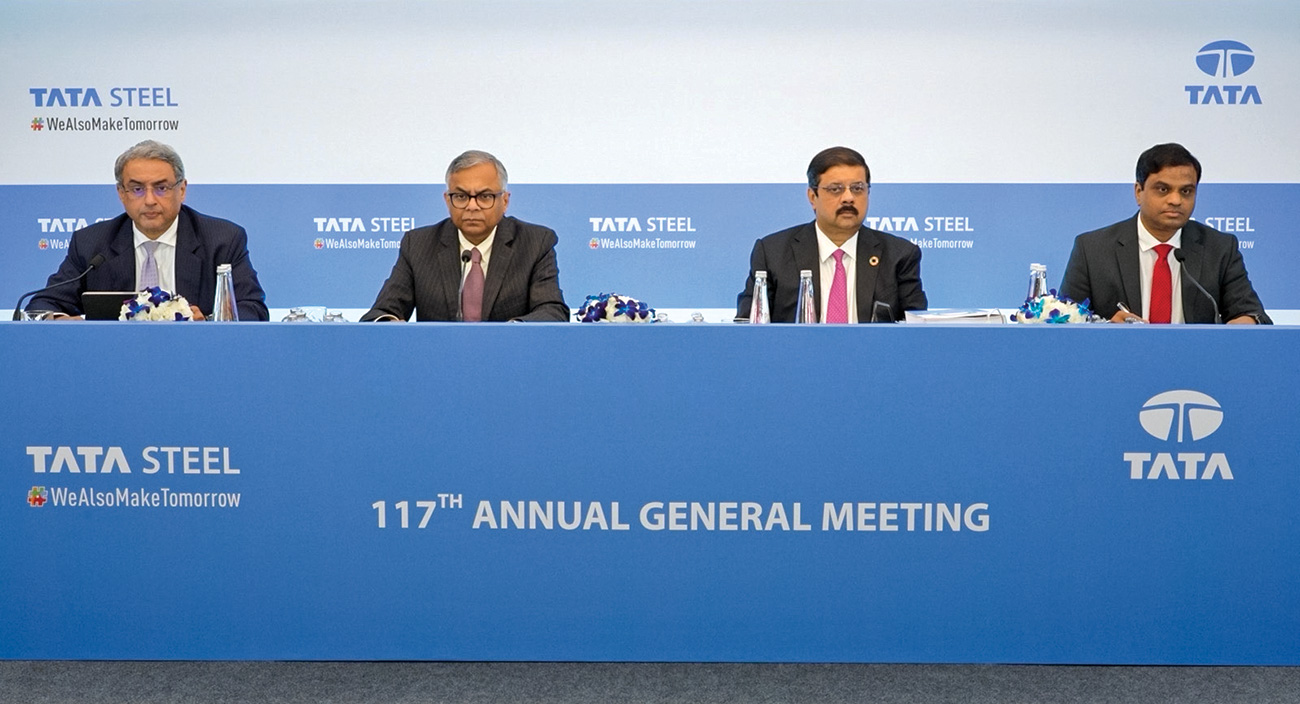
Tata Steel ensures regular and transparent communication with institutional investors, equity and debt analysts, and rating agencies through quarterly earnings calls, non-deal roadshows, ESG-focused interactions, and direct leadership access. The Company proactively discloses financial, operational, and ESG performance metrics, including through Integrated Reporting, sustainability disclosures aligned with GRI, CDP, and TCFD. Investor inputs shape its strategic roadmap, risk calibration, and capital allocation priorities, enabling robust governance and long-term value creation.
Customers
Tata Steel nurtures long-term, collaborative customer relationships through a diverse product mix, responsive service, and co-created solutions like VAVE (Value Analysis and Value Engineering), benchmarking, and teardown studies. Engagements span leadership meetings, webinars, and digital platforms like COMPASS for B2B visibility, DigECA for over 1,000 MSMEs, and Aashiyana, which has served 1.1 lakh homebuilders with tools like Material Estimator, chatbot, and WhatsApp support—maintaining an NPS (Net Promoter Score) of 77. The 'Aashiyana Transact' portal has also onboarded over 10,000 sellers.
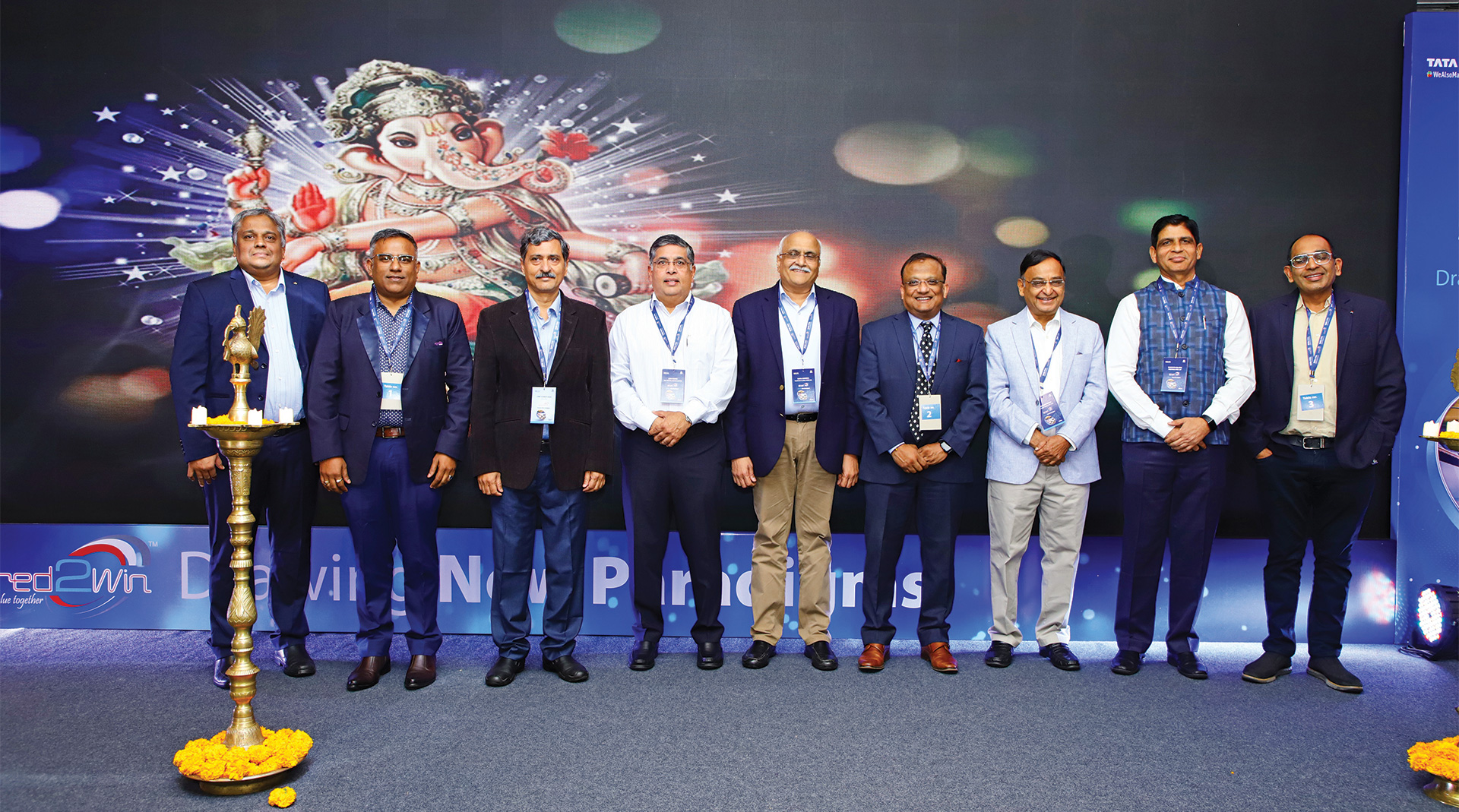
Tata Tiscon connected with 1.5 lakh home builders, added 5,000 ACEs (Architects, Contractors, Engineers), and trained 800 channel members. Tata Shaktee and Kosh reached over 50 lakh consumers, 40,000 farmers, and 23,000 dealers and fabricators. DigECA now offers a seamless MSME ordering journey, while Tata Pravesh has expanded the SmartCare Centres. The AI-enabled TSL CARes app, integrated with COMPASS and DigECA, provides 24/7 support. Through these efforts, Tata Steel empowers customers with efficiency and insight, while customers fuel innovation and relevance through trust and continuous engagement.
Vendor Partners
Tata Steel's vendor ecosystem is a critical lever in delivering value to customers and maintaining operational excellence. The Company has embedded sustainability and governance across the procurement lifecycle through mechanisms such as the Tata Steel Business Associate Code of Conduct, the Responsible Supply Chain Policy (RSCP) and a third-party Risk Management Framework. Over 1,100 critical suppliers are regularly assessed on health, safety, human rights, environment, and ethics.
Tata Steel actively builds partner capabilities through the Vendor Capability Advancement Programme (VCAP), Digital Health & Safety Evaluations, ESG assessments, and Business Associate Meets. Through initiatives like cluster development, vendor financing support, and capacitybuilding sessions, the Company also enables MSME competitiveness and inclusive growth. Its Affirmative Action policy promotes partnerships with enterprises led by entrepreneurs from marginalised communities, ensuring economic empowerment. Moreover, Tata Steel encourages localisation and indigenisation to promote regional economic development, especially around our mining and plant locations.
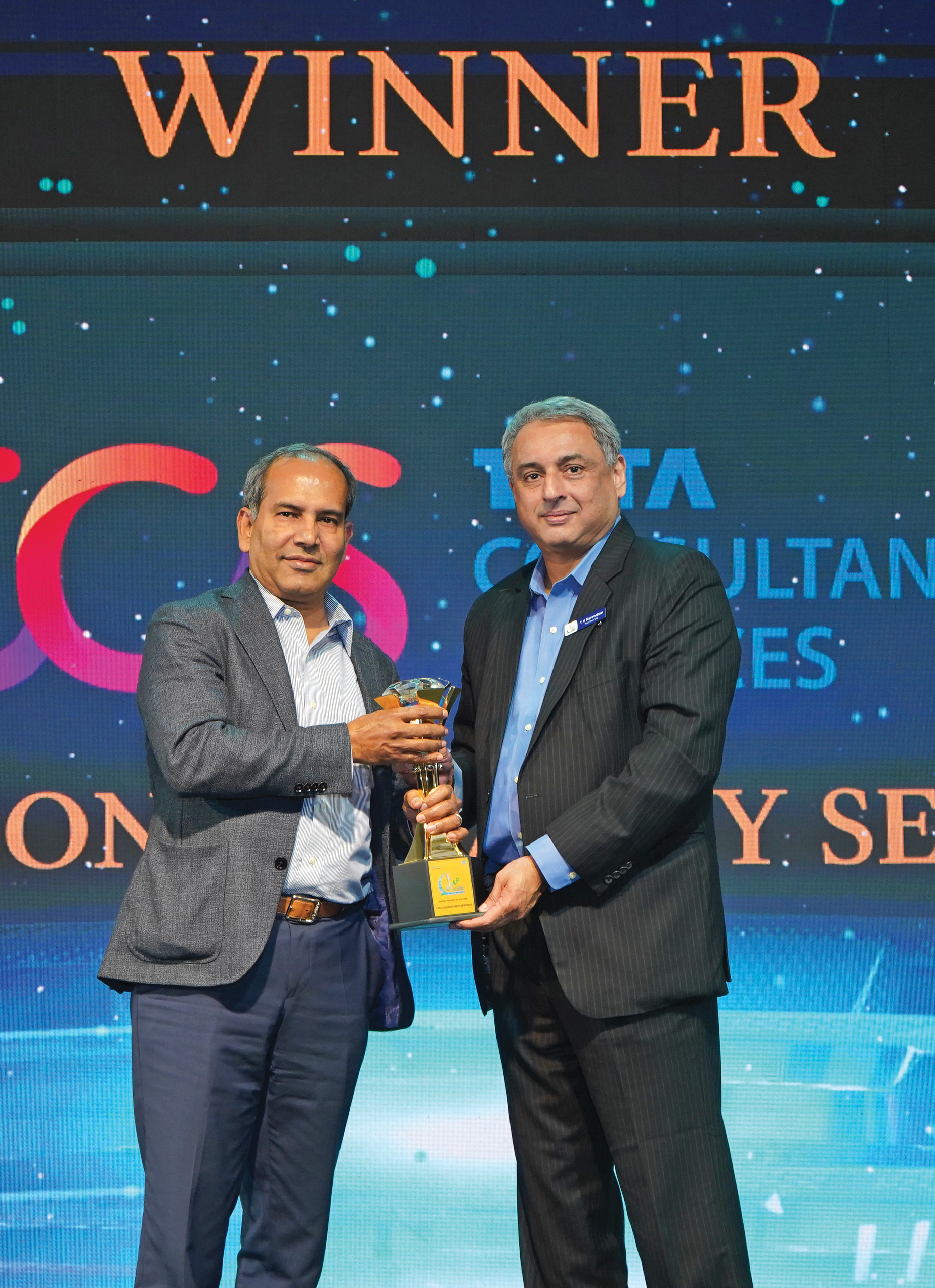

Government and regulatory bodies
As one of India’s oldest industrial enterprises, Tata Steel has always believed in constructive and principled engagement with government institutions. The Company's policy advocacy spans a wide range of areas — from steel sector competitiveness, logistics reform, mining and forest clearance frameworks, to decarbonisation, green hydrogen policies, and carbon trading regulations. Tata Steel contributes to state and national policy dialogues by engaging with various ministries (Steel, Commerce, Environment, Labour), industry platforms, and regulatory bodies. Its inputs have helped shape important policy developments including the Steel Scrap Recycling Policy, Vehicle Scrappage Policy, Carbon Credit Trading Scheme and improvements in environmental permitting processes.
In the Netherlands, the Company has been actively engaging with the Government on the proposed Green Steel Plan. In the UK, extensive dialogue with the Government led to the announcement of a £1.25 billion transformation plan, towards the transition to low-emission EAF technology at Port Talbot. Tata Steel is also collaborating on the Just Transition framework to address potential employment impacts and reskilling needs of the local workforce and supply chain. The Company's regular contributions through European policy forums continue to shape regulatory clarity around the Carbon Border Adjustment Mechanism (CBAM), Emissions Trading Systems, and Green Steel Certification Mechanisms.
Employees
Tata Steel’s people-first philosophy is realised through structured communication cascades, townhalls with leadership, Joint Consultative Committees (JCCs), continuous feedback channels, and digital HR platforms. This commitment to trust and transparency has fostered one of the world’s most stable industrial relations legacies—Tata Steel has not witnessed a workers’ union strike in almost a century, reflecting the deep mutual respect between the Company and its workforce.
Tata Steel invests in upskilling, leadership development, and future-readiness through classroom, online and on-the-job trainings. Safety and well-being remain top priorities, supported by rigorous protocols, mental health resources, and inclusive wellness programmes. Contract workforce engagement is strengthened through multilingual safety sessions, digital apps, and grievance redressal systems. The Company's DE&I initiatives aim to create a fair and inspiring workplace.
Tata Steel Nederland has initiated a comprehensive transformation plan, affecting 1,600 management and support positions, for which the Company will engage through formal consultations with the Central Works Council and trade unions. With the planned shift to EAF at Port Talbot, Tata Steel UK is working closely with trade unions, community representatives, and the UK Government to ensure a just and transparent transition, supported by reskilling, redeployment, and outplacement programmes.
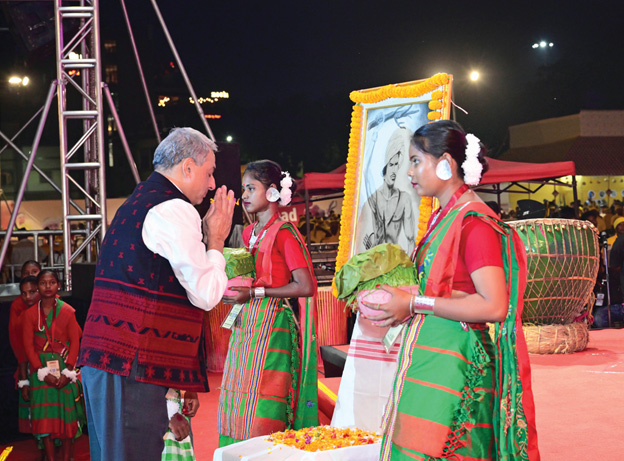
Communities
Tata Steel’s social licence to operate is founded on trust and collaboration with our host communities. The Company's CSR strategy promotes holistic development in education, health, livelihoods, and infrastructure, particularly in rural and underserved areas. It collaborates with local authorities and organisations to co-design solutions based on community needs. Tata Steel's resettlement and rehabilitation efforts prioritise dignity and livelihood continuity for displaced families.
The Company supports marginalised youth through scholarships, skill development, and entrepreneurship programmes, alongside initiatives in maternal and child health, water access, nutrition, and digital literacy. Regular engagement with communities through Gram Sabhas and village committees ensures ongoing feedback and collaborative governance.
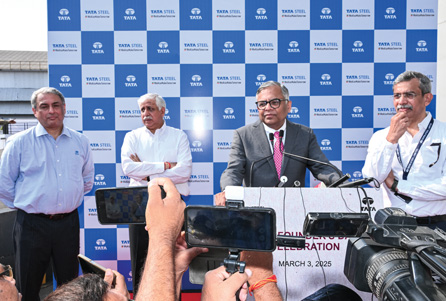
Media
Tata Steel engages proactively with the media to communicate its plans, performance, and values. The Company's media engagement strategy is focused on ensuring timely, fact-based, and thematic communication through interviews, press conferences, site visits, and regular media briefings. Tata Steel shares narratives not just on business performance but also on ESG leadership, innovation, DE&I, and community impact. The Company's regional and vernacular media outreach ensures that stakeholders in its operational geographies are well-informed and engaged. Through responsible media partnerships and transparent disclosure, Tata Steel aims to build credibility and foster greater understanding of our transformation journey.
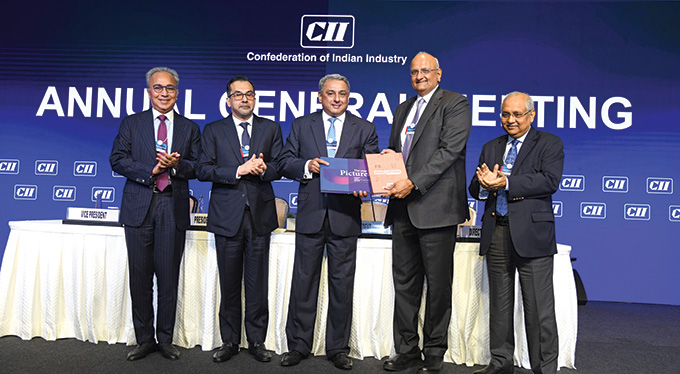
Industry bodies
Tata Steel actively engages with domestic and global industry associations such as CII, FICCI, worldsteel, the Indian Institutes of Metals, and ASSOCHAM. These platforms enables the Company to contribute to sectoral policy shaping, knowledge-sharing, and collective innovation on issues like carbon transition, mining reforms, circular economy, and international trade fairness.
Tata Steel also participates in government-constituted working groups and technical committees on decarbonisation pathways, hydrogen usage, and material efficiency. By sharing learnings from its operations, investments, and community engagement, Tata Steel helps shape the future trajectory of the steel sector and contribute to India’s Net Zero and circular economy goals.
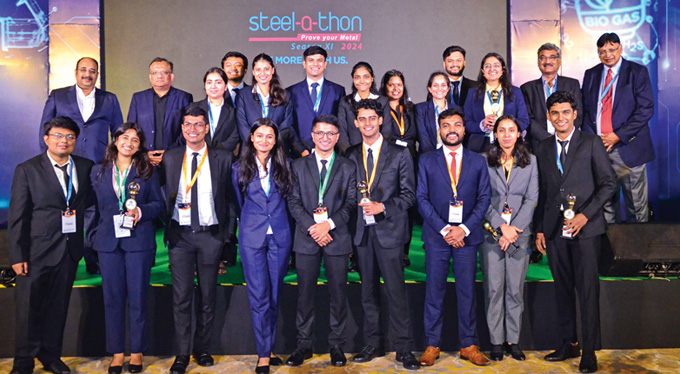
Academic institutions
Tata Steel fosters meaningful, long-term partnerships with academic institutions to advance research and innovation across key areas such as mining, manufacturing, finance, trade, and sustainability. These collaborations help bridge academic insight with industrial application, enabling the Company to co-create solutions that strengthen its value chain.
Academic partners also contribute to work on emerging technologies in sustainable manufacturing, digitalisation, coatings, and advanced product applications. Through active participation in national and regional committees, Tata Steel and its academic collaborators align on critical industry concerns and policy developments.